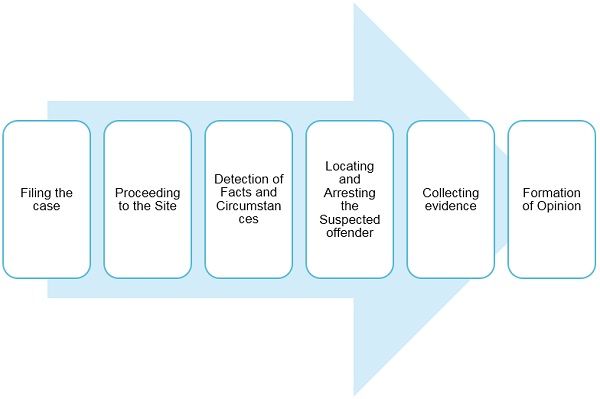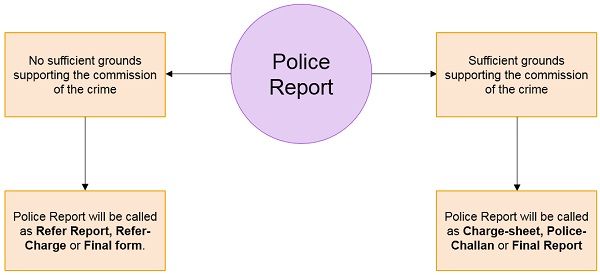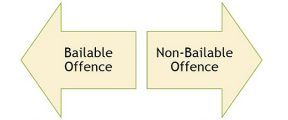 In common parlance, we use the words investigation and inquiry synonymously, but in law, they have separate meanings. The investigation is a systematic and formal examination of the facts and evidence, with an aim of establishing the truth. It plays a significant role in the trial of the criminal case.
In common parlance, we use the words investigation and inquiry synonymously, but in law, they have separate meanings. The investigation is a systematic and formal examination of the facts and evidence, with an aim of establishing the truth. It plays a significant role in the trial of the criminal case.
Contrarily, the inquiry is a judicial process that aims at determining whether the evidence submitted, in relation to the case is true or not.
The crucial point that distinguishes these two lies in the stage at which they are conducted and the person who conducts them. Further, these are helpful in the ascertainment of truth, to prove the guilt or innocence of the accused.
In this written material, we have discussed the differences between investigation and inquiry.
Content: Investigation Vs Inquiry
Comparison Chart
| Basis for Comparison | Investigation | Inquiry |
|---|---|---|
| Meaning | The investigation is the executive procedure of systematically collecting the facts and evidence, and determining the circumstances of the case. | Inquiry is a legal process, which is initiated with an aim of clearance of doubt, finding out the truth or furtherance of knowledge regarding the case. |
| Defined in | Section 2 (h) of CrPC | Section 2 (g) of CrPC |
| Conducted by | Police Officer or any other person authorized by Magistrate. | Magistrate or Court |
| Stage | First Stage | Second Stage |
| Objective | Collection of facts and evidence | Determination of truth and falsehood of the allegations |
| Commencement | When an FIR or complaint has been lodged. | When charge-sheet is filed. |
| Ends in | Filing of Police Report | Framing of Charges |
| Nature of Process | Administrative Process | Judicial or Non-Judicial Process |
Definition of Investigation
Investigation refers to the various legal actions, taken by the Police Officer, or by any other person excluding the Magistrate, so authorized by the Magistrate in this regard, for obtaining evidence, such as Central Bureau of Investigation (CBI).
Investigation begins when the officer in charge of the concerned police station, gets information with respect to the commission of the offence. For this purpose, the officer is empowered to demand the presence of all the individuals, who appear to be aware of or having knowledge of the circumstances of the case. The investigation is made by the police to:
- Collect evidence
- Interrogate the accused and record his/her statement
- Record the statement of witnesses
- Scientific analysis
Process of Investigation
The investigation process involves the following steps:
- Filing the case, as reported by the complainant.
- Proceed to the site, where offence took place.
- Detection of facts and circumstances of the case.
- Finding out and arresting the suspect.
- Obtaining evidence in connection with the crime which incorporates:
- Examination of the accused and other individuals and recording their statements in writing (only when the investigating officer thinks fit)
- Search and seizure of place and things deemed relevant for the purpose of investigation and producing the same before Magistrate during the trial.
- Formation of opinion regarding the evidence collected is sufficient to present the accused before the Magistrate and if that is the case, necessary steps are to be taken to file the charge-sheet.
Documentation for Police Investigation
Following documents are to be included for Police Investigation
- First Information Report (FIR)
- Crime details form
- Arrest/court surrender memo
- Property seizure memo
- Final report form
Also Read: Difference Between Acquittal and Discharge
Definition of Inquiry
Almost all the investigation is followed by inquiry, which is nothing but a critical examination by the judicial officer, i.e. Magistrate. It tends to evaluate and filter out those cases, which have sufficient grounds that confirm the commission of the crime, so as to forward them to the next level, which is Trial.
In simple words, Inquiry can be defined as probing and analysis of the case, carried out by the Magistrate of the Court or the Court, so as to determine the truth or otherwise of the case, so as to take legal actions. Evidence received by the magistrate during the inquiry should be recorded. It encompasses:
- Cross-examination of the witnesses,
- Clearance of Doubt, and
- Inspection of the site, where the offence took place.
As per Section 159 of the CrPC, the Magistrate has the power to hold a preliminary inquiry on the receipt of the police report, for the purpose of ascertaining the authenticity of the allegations. And if it is found that the offence has been committed, whether the accused should be put up on trial.
Also Read: Difference Between Judge and Magistrate
Key Differences Between Investigation and Inquiry
Now, after taking a peep into the meaning of these two terms, let us move forward to understand the difference between investigation and inquiry:
- Investigation refers to the executive proceeding that involves systematic collection of the facts and evidence, and ascertainment of the circumstances of the case. On the contrary, Inquiry is a judicial proceeding, which is initiated with an aim of clearance of doubt, finding out the truth, or furtherance of knowledge regarding the case.
- In Code of Criminal Procedure, 1973, the definition of Investigation can be found in Section 2 (h), whereas Inquiry can be found in Section 2 (g).
- The investigation is performed by a Police Officer or any other person authorized by the Magistrate on this behalf, such as any governmental agency, for example, the Central Bureau of Investigation. Conversely, Inquiry is performed by the Magistrate or Court.
- Basically, Investigation and Inquiry are two separate stages of a criminal case, wherein investigation is regarded as the first stage in which the police officer on his own or after receiving the orders of the magistrate investigates the case. And when there is sufficient evidence to validate the commission of the offence, the police officer submits the report to the Magistrate. Thereafter, the second stage, which may be inquiry or trial.
- The primary objective of the investigation is to identify whether the alleged crime has been committed or not and if that is the case, then who committed the same and collect relevant evidence for the same. Oppositely, the prime objective of inquiry is to find out the truthfulness or falsehood of the allegations.
- Police start an investigation, as and when an FIR or complaint has been lodged, regarding the offence, whereas Inquiry is started by the Magistrate when the charge-sheet is filed by the police.
- The investigation comes to end when Police Report is filed. On the other hand, Inquiry takes place prior to the framing of charge, i.e. the point when charges are framed, the inquiry comes to end.
- An investigation is an administrative process, whereas an inquiry is a judicial process, in that during the course of proceeding evidence is taken on oath.
What is Police Report?
Police Report is the report submitted to the Court by the Police Officer, once the investigation is over.
When the Police are of the opinion that there are no sufficient evidence, which supports the commission of offence by the accused, to present him before the Magistrate for the purpose of Trial, in that case, Police Report can be in the form of Refer Report, Refer-Charge or Final form.
In contrast, when the Police reached the conclusion that there is sufficient evidence that validates the commission of the crime by the accused, to present the accused before the Magistrate, for the purpose of the trial, then the Police Report can be in the form of a Charge-sheet, Police-Challan or Final Report.
On the completion of the investigation, Police Report is submitted to the magistrate, which includes the following details:
- Name of the parties concerned
- Nature of the information
- Names of all the persons having knowledge of the circumstances of the case.
- Determination of commitment of the offence, if yes, then by whom (i.e. name of the suspected offender).
- Whether or not the accused has been arrested.
- In case the accused is released on bond, if that is the case, it is with or without sureties.
- Whether the person charged with crime has been transferred to custody under Section 170 of CrPC.
Also Read: Difference Between IPC and CrPC
What is a Trial?
The trial is a judicial proceeding in which truth and falsehood is tested. In the proceedings, the evidence obtained by the Police or any other agency at the time of investigation is produced to the court and the conclusion made by the Investigating officer has to prove or disprove.
It is a stage, that begins after the framing of the charges against the accused, and ends with conviction or acquittal. Further, based on the gravity of the offence and punishment prescribed, trials are classified as:
- Magisterial Trial
- Session Trial
Also Read: Difference Between Hearing and Trial
Conclusion
Investigation of a criminal offence, provides a base to the case. It is the initial stage of the criminal proceeding. As against, Inquiry is the next stage of the criminal proceeding, in which if there are any doubts, questions or confusion, concerning a certain point or allegation are cross-examined by the Magistrate, so as to check the genuineness of the case.






Leave a Reply